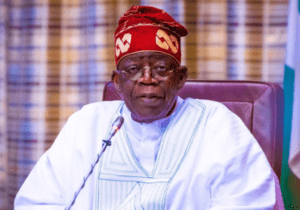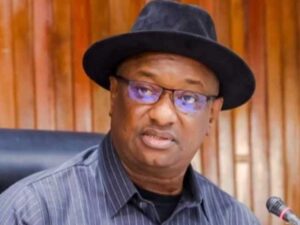From COP27 to COP28: Key factors for Africa ahead of the 2023 United Nations Climate Change Conference
By Tshepo Ntsane
The Conference of the Parties (COP) to the United Nations Framework Convention on Climate Change (UNFCCC) represents an important international forum for countries to gather to discuss and address global climate change issues. However, to date these conferences have tended to be high level and process based, and COP 27 was no exception – negotiations took place and some of the highlights included the historic establishment of the loss and damage fund which was seen as setting a precedent for climate justice. However, agreements on other matters such as phasing out of fossil fuels and setting peaking periods for emissions were not achieved. For African countries in particular, COP 28 marks an important pivot point around funding, just transition and the Nairobi Declaration. There will be a push for realisations on commitments made, and innovative funding mechanisms to drive accelerated climate action now and beyond.
Making good on promises
During previous COPs significant commitments were made by developed countries around funding and financial support to help developing nations transition. COP27 saw a funding announcement of about $105 million by eight donor governments to support countries facing the worst effects of climate change, including Senegal, The Gambia, Sao Tome and Principe. The pledge adds new funding to the Least Developed Countries Fund (LDCF) and Special Climate Change Fund (SCCF), augmenting the $413 million pledged by 12 other donor countries at COP26.
However, while numerous promises have been made, no concrete action has yet been taken. Of the commitments made at COP15 to provide $100 billion a year to developing countries for climate action, only a quarter – has been achieved. In addition, one of the main concerns raised with the financing is the fact that a large proportion are structured as loans, thereby imposing a debt burden on already debt-stressed developing countries. Other issues include transparency of the agreements and timelines for the funding. For many African countries to move forward, these challenges need to be addressed. This will likely be a topic of focus at COP28, as countries in the region look to achieve their own targets for carbon and emissions reduction.
Not just about transition
For many developing countries in Africa still heavily reliant on fossil fuels, the issue of transition is not limited to cleaner, environmentally friendly sources of fuel. Entire communities are often built around fossil fuels, such as in South Africa where, in the Mpumalanga province, entire local economies are dependent on the mining of coal. When coal-based fuels are phased out and coal mines closed, the impact on people in the coal value chain, including these vulnerable communities and economies that are built around coal mines, will be significant.
A just transition also involves the reskilling and upskilling of people reliant on coal for their livelihood to ensure they remain productive members of society who contribute to the economy. The timing and funding of skills development initiatives are still up for debate.
Funding the commitments
Climate resilience is something all countries are looking to implement, but countries in Africa have unique challenges as well as unique resources and strengths that we need to play to. During COP27 the concept of carbon credit markets and carbon offset schemes emerged, which would allow companies to buy carbon credits to offset their own emissions. This would not only open up a potential market for carbon offset projects and investment opportunities for developing countries, it would also help to channel resources into projects that deliver real benefits.
However, once again the issue of transition reaches beyond transition to transforming African economies. This starts with access to clean energy. The Nairobi Declaration proposes new financing mechanisms to help countries in Africa unlock funding for transition and promote sustainable use of resources to help the region contribute toward global decarbonisation. One of the declarations from the Climate Summit in Kenya included a call for developed countries to honour their commitment to provide $100 billion in annual climate finance, as promised 14 years ago at the Copenhagen conference. Furthermore, it included proposals for new debt relief and restructuring interventions and instruments such as extension of sovereign debt tenor and inclusion of a 10-year grace period.
COP28 will need to see developed countries make good on their funding commitments, while Africa moves forward with an aligned strategy to ensure just transition without leaving anybody behind.
Tshepo Ntsane is a Sustainable Finance Transactor at Rand Merchant Bank




